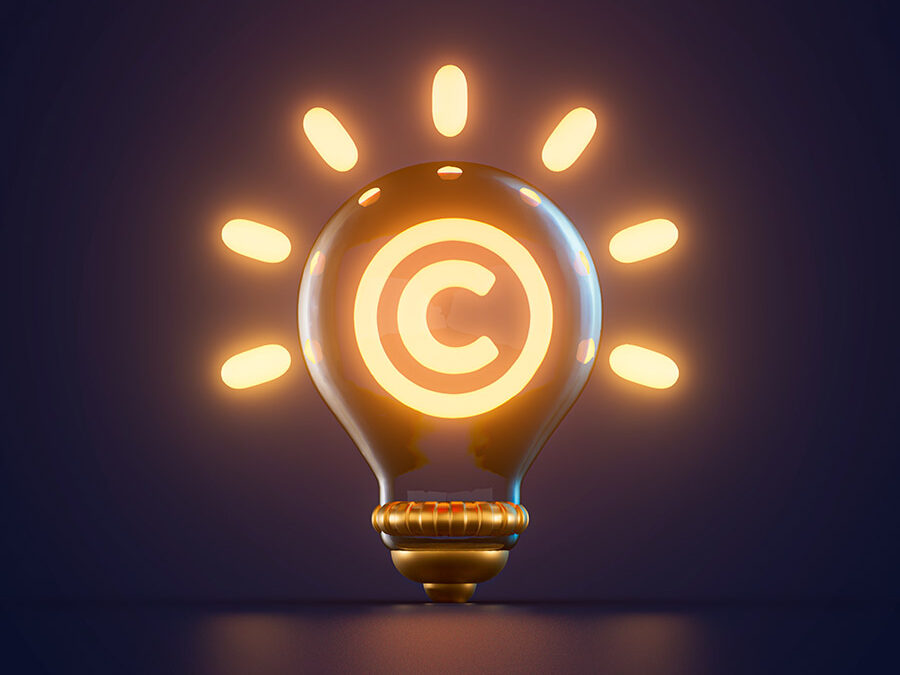
Jul 12, 2022 | Film & TV, Filmmakers
You hold the copyright to a movie, short film, etc. once it has been put into a fixed form as the creator, however actually registering that copyright provides additional protection against infringement.
The Copyright Act defines “motion pictures” as “audiovisual works consisting of a series of related images which, when shown in succession, impart an impression of motion, together with accompanying sounds, if any.” 17 U.S.C. § 101 – which includes TV Shows, video games, animation, videos, and similar types of works .
The Copyright Act further defines “audiovisual works” as “works that consist of a series of related images which are intrinsically intended to be shown by the use of machines or devices such as projectors, viewers, or electronic equipment, together with accompanying sounds, if any, regardless of the nature of the material objects, such as films or tapes, in which the works are embodied.” (17 U.S.C. § 101).
In the event someone does infringe upon your rights as a creator, the attorneys at Arrington & Phillips, LLP can help you seek statutory damages in both domestic and international matters.
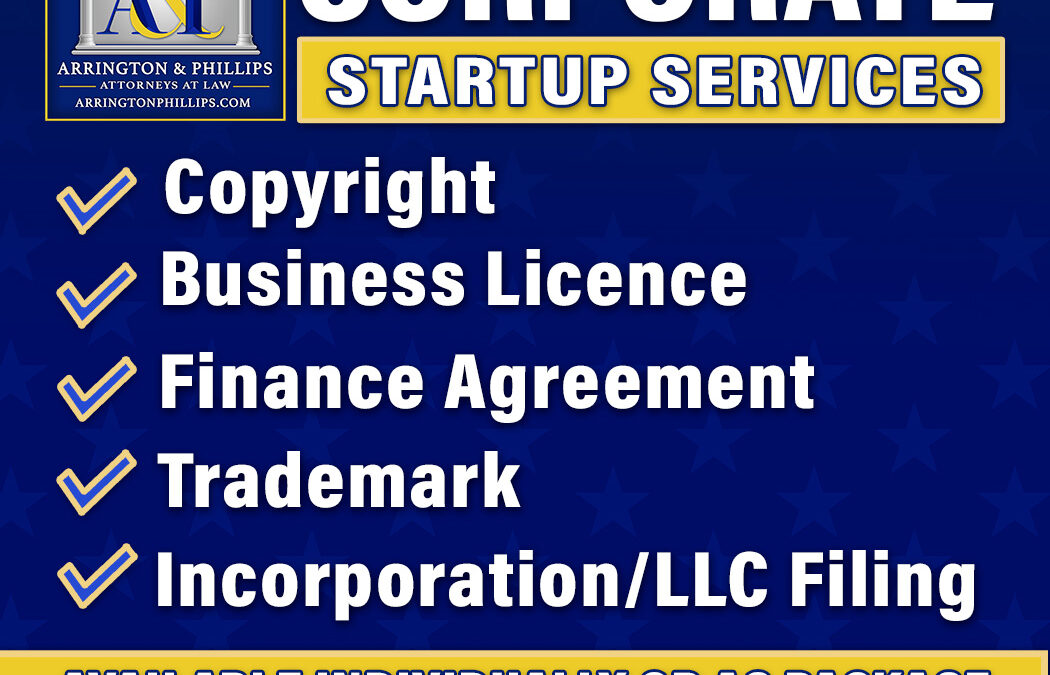
Jul 11, 2022 | Business Law, Legal Community, LLC Business
The Law Office of Arrington & Phillips, LLP is a full service law firm prepared to meet all of your business legal needs and corporate interests in the Atlanta Metropolitan area. Our attorneys have been instrumental in organizing business ventures, developing business plans, planning for strategic growth, and helping clients pursue merchandising and other profit-making venues for their creations. We counsel our clients as to the protection, acquisition, and licensing of copyrights, trademarks and other proprietary rights.
Create your own business service bundle
ArringtonPhillips.com, or call 404.349.2330 to get started today.
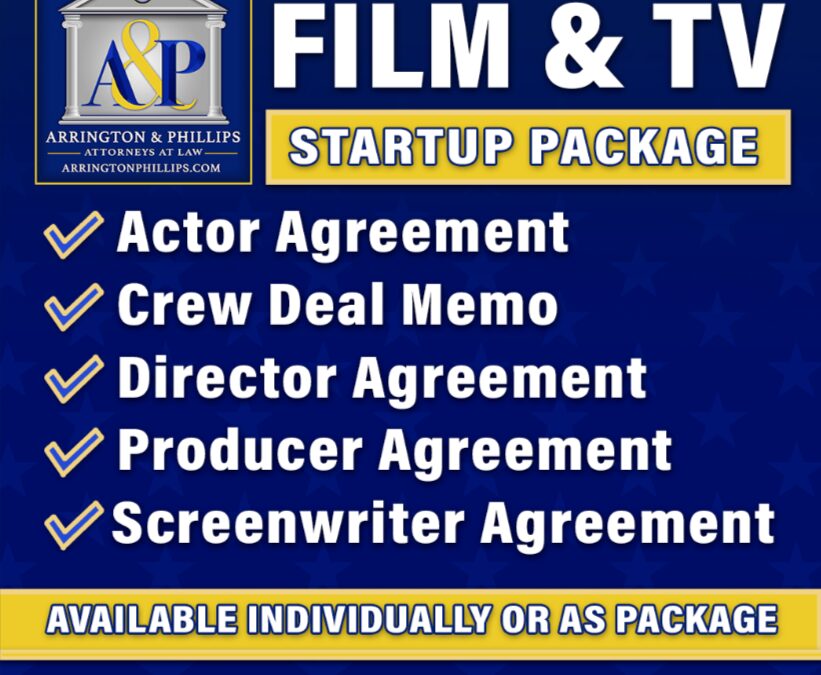
Jul 7, 2022 | Film & TV, Filmmakers
Whether you are a radio or T.V. personality, film professional, producer or production company – you need professional expertise and proven experience to represent your creative interests. The knowledgeable attorneys at Arrington & Phillips, LLP are experienced in handling the intricate aspects of film and television law. Get advised on all stages of production deals including: the acquisition of rights and development, financing, preproduction, production, distribution, and business affairs.
Take advantage of a package deal on legal services by visiting ArringtonPhillips.com/FTV.

Jul 7, 2022 | Film & TV, Filmmakers
As a producer, thinking about your legals is likely the least exciting part of your job. But it’s probably something you think about more than you want to! That’s because the legal side of what you do can have such a big impact on the commercial side. When you’re creating music, film or other creative works in collaboration with other creatives, there are a range of legal issues that come into play and impact how you run your business. One of the biggest things you should be thinking about is intellectual property ownership — but there’s also things like payment, deadlines, liability protections, deliverables and confidentiality to consider. The easiest way to cover yourself is normally to put in place a Producer Agreement.
What Is A Producer Agreement?
A Producer Agreement is pretty much what it sounds like! It’s a legal contract between a producer and their clients. It sets out the terms and conditions under which a product will create music, film or other creative works for their clients. It can be something clients sign at the start of each project, or it can be more like an ongoing retainer. In any case, a Producer Agreement is best when it’s signed before you start working with anyone, so that everyone has clear expectations about their position moving forward.
What’s Included In A Producer Agreement?
The specific contents of a Producer Agreement vary depending on exactly what kind of work you’re doing. However, a standard agreement typically includes clauses like:
-
Scope of services: What services will the producer provide? What exactly is included and what is excluded?
-
Liability protections: Who is responsible if things go wrong?
-
Intellectual property ownership: Who owns the intellectual property in the final deliverable? And who owns all the IP used before and after the project?
-
Payment and late payment: How much will the producer get paid? How will they get paid (e.g. is it a one off payment or is it in royalties?)? And what happens if the client doesn’t pay or pays late?
-
Confidentiality: Is there anything that needs to be kept confidential between the parties?
-
Term and termination: How long does the contract go for? How do you get out of it?
Producer Agreement Example
Shae is an electronic music producer. He does a lot of work with his friend, Grace, who is a professional singer. Recently, Grace recorded vocals for a new song and sent it to Shae, asking him to collaborate on the music and produce it for her.
Shae agrees, as long as he owns the IP in the music while Grace owns the IP in the lyrics. They sign a Producer Agreement, which covers other matters like timing, payment and confidentiality.
At the end of the project, Shae and Grace release the song and it’s a huge success. Grace approaches Shae, saying that she should be getting paid more for the song’s success because it was her idea in the first place. Shae shows her the agreement they signed, and they have a candid discussion about what they originally agreed on and why.
In the end, Grace confirms that she still agrees with the original contract they signed, and they decide to pursue another project together off the back of their recent success.
Need Help With A Producer Agreement?
Having a properly drafted Producer Agreement is really important – it helps set your expectations with your clients, secures your payments and protects your intellectual property and other legal risks. However, if you don’t have legal experience it can be hard to know whether you’ve got it right. Having a lawyer help you draft a legally sound Producer Agreement will give you clarity around your engagement, and also relieve you from the stresses associated with the legal side of the business so you can focus on what you love to do!
At Sprintlaw, we have a team of experienced lawyers who can assist you with drafting a Producer Agreement. Get in contact with one of our consultants for a no-obligation chat on how we can help you put together a Producer Agreement and help with any other legal issues your business may have.

Jul 6, 2022 | Entertainment Industry, Music Law
While music law focuses primarily on copyright law and licensing, music law also involves other areas of law in the music business. Other types of law that are part of music law include:
Contract law
Contracts are at the heart of the music business. Artists, song writers, producers, distributors and even consumers rely on contracts to create, sell and listen to music. Many performers and event producers are independent contractors, and music producers rely on distributors to sell their work. For all of these people in the music industry, contracts are important to make sure that everyone involved has clear expectations. Even consumers use contract law in the music industry. Anyone who buys a subscription to a music service or even buys a concert ticket has some interaction with music-related contract law.
Immigration and visa requirements
Performers who travel to another country in order to perform for pay often need an immigration visa for that purpose. To enter the United States, non-citizen musicians generally need one of a number of different P category visas depending on the nature of their work. Music lawyers must help their clients secure the visas that they need in order to enter the country for their intended purpose.
Safety and health
Music performances are productions. They can be dangerous. Music producers must comply with Occupational Safety And Health Act requirements for the safety of their employees and independent contractors.
Taxes
Whether you’re a U.S. citizen, a lawful resident or simply in the country for a short duration to perform, all musicians in the United States are subject to U.S. tax laws. U.S. citizens may also need to pay taxes for what they earn abroad. In addition to tax liabilities, there are tax exemptions and deductions that may help musicians like a deduction for a home office or expense deductions for self-employed musicians. Music law may involve tax law to the extent that music lawyers may help their clients comply with tax laws and lawfully minimize their tax liability.
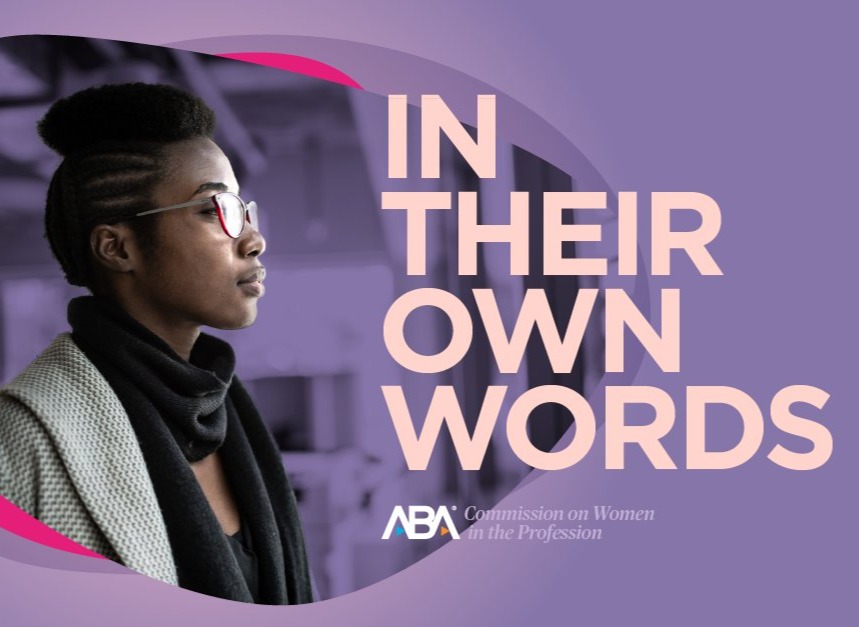
Jun 24, 2022 | Community News, General, Legal Community
Experienced Women Explain Why They Are Leaving Their Firms and the Profession
The answer lies in a lack of credit for their efforts…
In Their Own Words reveals, in vivid detail, the experiences that lead women lawyers to leave private practice. Based on their stories, the report offers recommendations for legal employers to improve the law firm environment for them. The third in the Long Term Careers for Women in Law series, this report provides valuable insight in to the issues and dynamics that lead to women’s attrition.
About: The American Bar Association provides resources to assist lawyers and judges, accredits law schools and works to improve the legal system for the public.
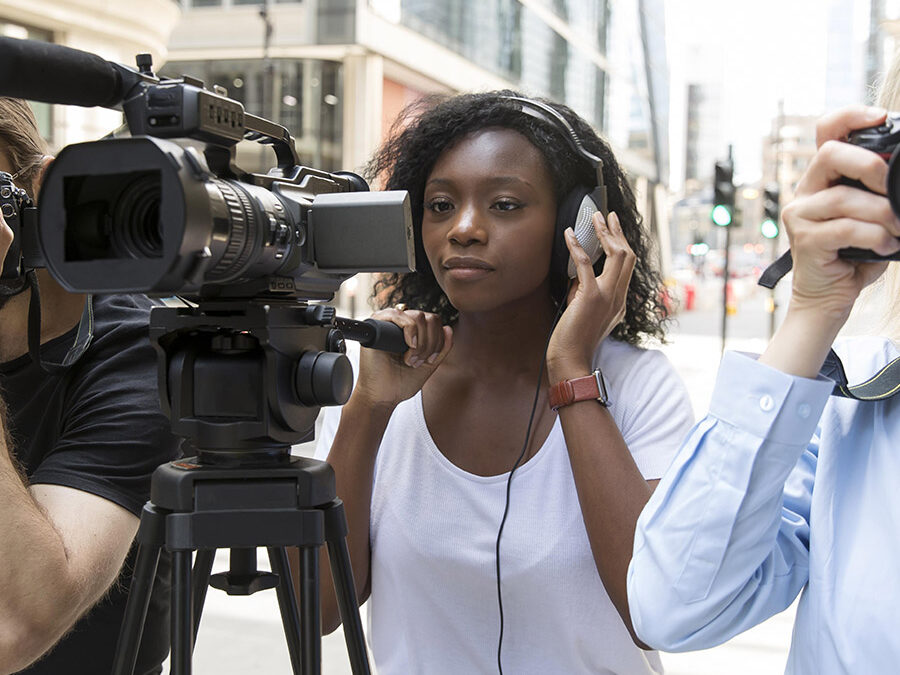
Jun 24, 2022 | Entertainment Industry, Music Law
There are many entities that broadcast music. Radio stations, television stations, bars, restaurants and even schools broadcast music or perform it live. Because the creator of a musical work gets a copyright for the work, people who want to broadcast a work or perform it live usually must have a license from the owner. There are some important exemptions. Music attorneys may advise their clients as to whether they need a license for what they want to do.
For example, a radio or television station typically pays the music owner for non-exclusive rights to the work. The cost of a radio station’s license depends on the size of its audience, the station’s revenues and how often the station plays the music. A music owner may ask for reports on when the station plays the work.
Even if a television station buys broadcasting rights to a musical work, the broadcasting rights alone may not cover the right to publish the song on a DVD. When a television show moves to DVD, the publishers of the television show may need to re-negotiate licensing for the music to appear on the DVD. It’s not uncommon for television shows to have to change their sound if music owners aren’t able to agree on terms for the music’s inclusion in a DVD release.







